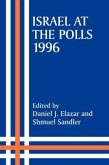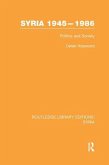Based on extensive research of British documents from the Public Records Office, and American documents from the National Archives and several Presidential Libraries, this book surveys events in Kuwait from the beginning of the twentieth century until the Second World War, and explains Britain's initial interest in the ruling al-Sabah family, before focusing on the post-1945 period. After the Second World War, Kuwait became an important British concern and also an area of considerable interest to the United States. The author explains how Washington achieved representation in Kuwait and describes the development of the region as the flow of crude oil enriched the small Shaikhdom. The Kuwaiti reaction to Egyptian president Abdul Gamal Nasser, the 1956 Suez crisis, and the Israel boycott are analysed, and the author focuses on how Britain and the al-Sabah family worked together to establish an independent Kuwait. The book goes on to detail the 1961 attempt of Iraqi dictator Abdul Karim Qasim to annex Kuwait, and discusses the country's progress during the first decade after independence, while also documenting Britain's departure from the Gulf region. Finally, an analysis is presented of the events leading to the 1990 Iraqi invasion of Kuwait and the Anglo-American response to this crisis.
Hinweis: Dieser Artikel kann nur an eine deutsche Lieferadresse ausgeliefert werden.
Hinweis: Dieser Artikel kann nur an eine deutsche Lieferadresse ausgeliefert werden.







